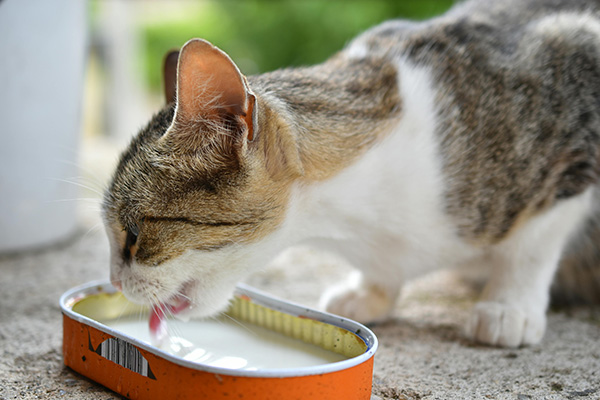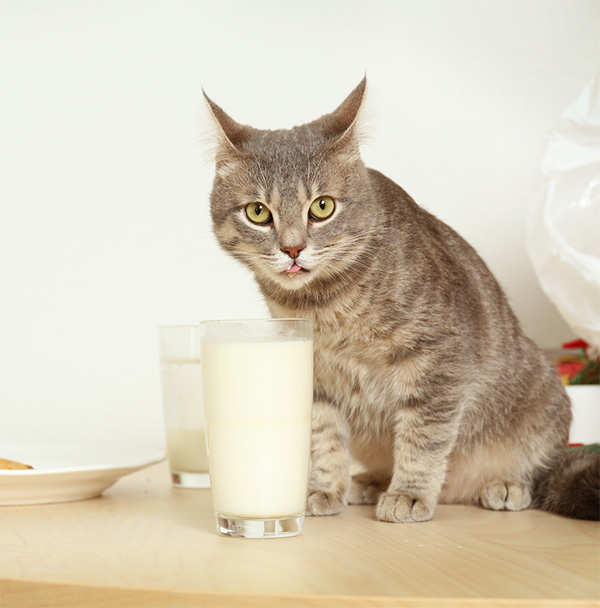The image of a cat lapping a bowl of milk is one of popular culture's most iconic and enduring visuals. From cartoons to classic literature, cats drinking milk have been portrayed as a feline favorite. However, as charming as this image might be, it raises an important question: Can cats have milk? While many cats seem to crave milk, particularly cow's milk, the truth is that most cats, especially adult cats, are lactose intolerant and may experience digestive problems such as an upset stomach if they drink milk.
In this post, we will dive into whether cats should be given milk or lactose-free milk, explore the risks of feeding milk to your feline companion, and clear up some common misconceptions. Whether it's kittens drinking their mother’s milk or the impact of dairy products like soy milk or almond milk, we aim to address the nutritional needs of cats and offer safer milk alternatives.
The Origins of the Milk Myth
The idea that cats love milk has deep historical roots, likely stemming from when domesticated cats were commonly found in barns and dairies. In these environments, cats would often drink cow’s milk left over from milking, which led to the widespread belief that cats crave milk as part of their natural diet.
Over time, this association became ingrained in culture, further solidified by media representations of a cat drinking milk. Despite the advances in veterinary medicine and our modern understanding of feline health, the myth persists that cats drink milk as a suitable treat.
What Happens When Cats Drink Milk?

When cats consume milk, their digestive systems may not react as expected. Unlike humans, most cats lack sufficient lactase enzymes to digest lactose, the sugar present in milk. This lack of lactase leads to lactose intolerance, which can cause discomfort and digestive issues in cats.
Is Milk Safe for All Cats?
Not all cats react the same way to milk consumption. While some adult cats may seem to tolerate milk without immediate adverse effects, many adult cats will develop lactose intolerance as they mature. For the small percentage of cats that can tolerate milk and digest lactose, it’s important to remember that milk does not provide the necessary nutritional needs for a balanced cat’s diet. Thus, even for those cats that can drink milk without immediate issues, milk is neither a healthy nor essential part of their diet.
Symptoms of Lactose Intolerance in Cats
Lactose intolerance in cats typically manifests through a range of gastrointestinal symptoms. Common signs include diarrhea, vomiting, and gas, all of which can cause significant discomfort in your feline friend. In severe cases, these symptoms can result in dehydration, necessitating veterinary intervention. To prevent these negative effects, lactose-intolerant cats should avoid cow’s milk and other dairy products.
Milk and Kittens: A Special Case
Unlike adult cats, Kittens can digest their mother’s milk due to the presence of the enzyme lactase. This allows them to comfortably drink their mother’s milk in the early weeks of life. However, this does not mean that cow’s milk or even goat milk is a suitable alternative for kittens. Cow milk lacks the specific nutrients that young kittens need and can cause the same digestive issues seen in lactose-intolerant adult cats. As kittens grow and start eating solid food, their ability to digest lactose decreases. This transition makes cow milk inappropriate as they lose the lactase enzyme necessary to digest milk effectively.
Nutritional Needs of Cats: What Does Milk Lack?
While milk might seem like a wholesome comfort food for cats, it does not meet the nutritional needs required for a balanced diet. Cats require a diet rich in proteins and specific vitamins that milk—whether it's cat milk or cow milk—simply does not provide. Relying on milk as a regular part of their diet can lead to nutritional deficiencies, especially when cats drink milk instead of consuming their necessary solid foods and fresh water.
Potential Health Risks of Feeding Cats Milk

Feeding cats milk can lead to long-term health risks, including obesity and chronic digestive problems. The high-fat content in milk can lead to weight gain, which in turn raises the risk of serious health issues in cats, such as diabetes and pancreatitis. Additionally, cats are lactose intolerant, and consuming milk can cause an upset stomach, loose stool, and other symptoms that indicate their difficulty digesting it.
What About Lactose-Free Milk?
Lactose-free milk might seem like a good compromise, but it’s not without its downsides. While it may prevent the immediate symptoms of lactose intolerance, it still doesn’t provide the nutrients cats need. Moreover, the high-calorie content can lead to obesity and other health problems if given frequently.
Are Plant-Based Milks Safe for Cats?
Almond, soy, and other plant-based milks are often considered healthier alternatives for humans, but they are unsuitable for cats. These kinds of milk can contain ingredients that are hard for cats to digest and may cause allergic reactions or other gastrointestinal issues.
Milk Alternatives: What Can Cats Drink?
The best drink for cats is simple: drinking water. It’s crucial for their hydration and overall well-being. While cats may enjoy drinking milk, especially when they are young, and kittens drink milk from their mothers, drinking water should be their primary source of hydration as they mature and begin to eat solid food. Special cat milk products are available for those looking for a special treat, though they should be given sparingly and never as a replacement for water.
How to Transition Your Cat Off Milk
If your cat has developed a taste for cow milk, transitioning them to a milk-free diet should be done gradually. Start by diluting the milk with water and slowly decreasing the milk content. As cats mature and their digestive systems change, it’s important to transition them to a diet that primarily includes solid food and drinking water. Offering alternative treats, such as cat-safe snacks or toys, can also help distract them from their milk cravings.
Common Misconceptions About Cats and Milk
Despite widespread belief, cats do not need milk to be healthy. Many people mistakenly think that milk, whether it's cow milk or plant-based milk, is a necessary part of a cat’s diet, but this is not supported by veterinary science. Since cats are lactose intolerant, giving them milk can be more harmful than beneficial. Distinguishing between myth and fact is important for ensuring the health and well-being of your feline companion.
Veterinary Advice on Cats and Dairy
Veterinarians generally advise against giving cats milk due to the potential health risks. Although the occasional small amount of special cat milk might not cause immediate harm, it’s not recommended as a regular treat. For cat owners, understanding and following professional advice is key to maintaining a healthy diet consisting of solid food and drinking water.
